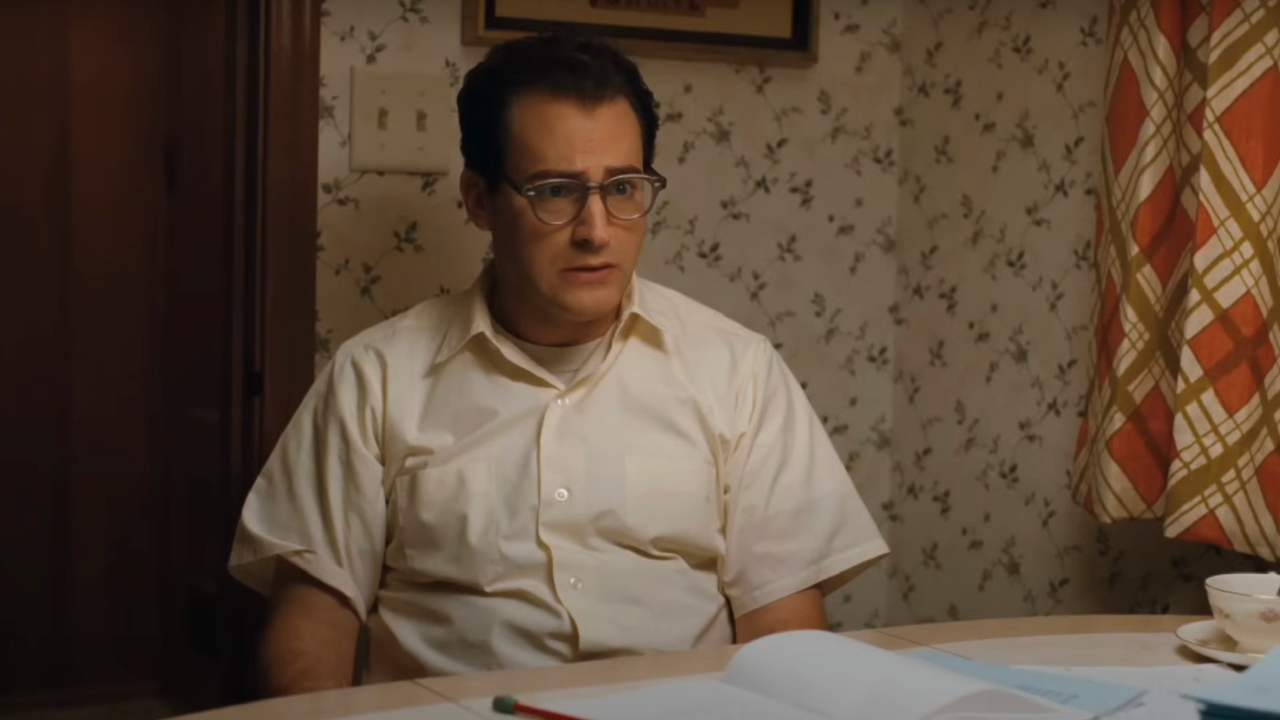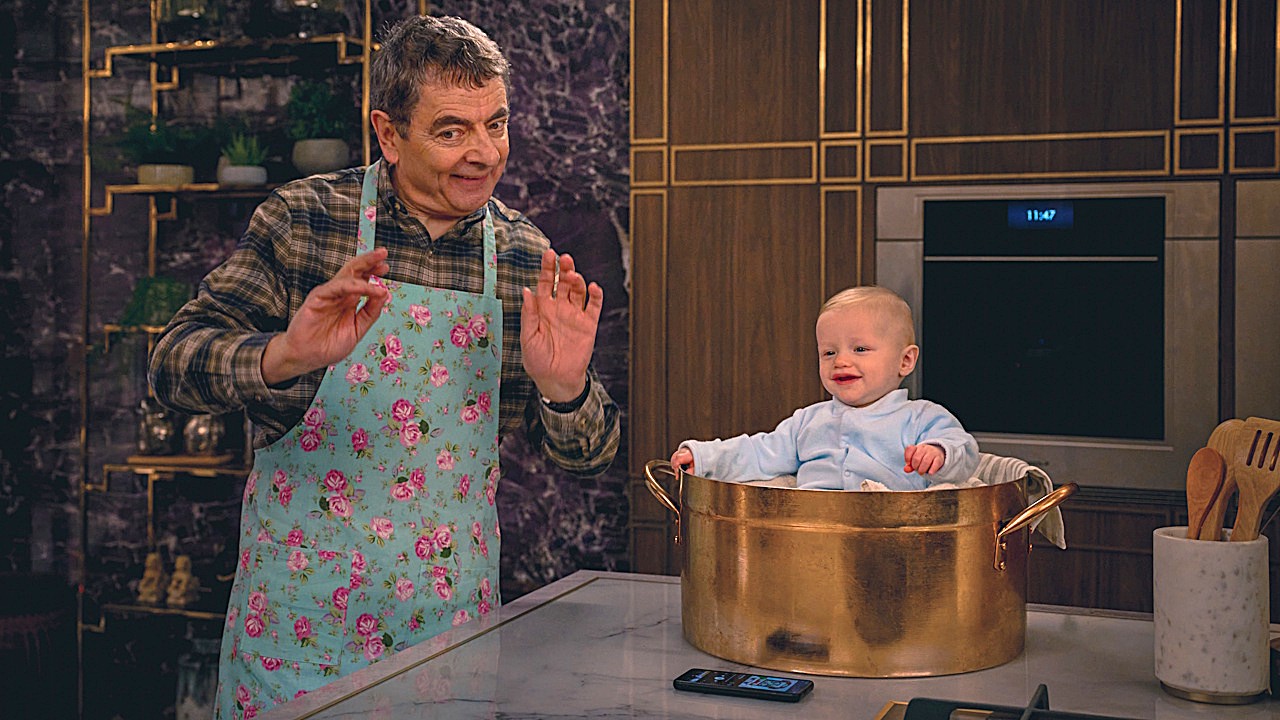Interview: Joel And Ethan Coen On A Serious Man

Joel and Ethan Coen aren't known for talking a whole lot about the meaning of their movies. Good luck getting them to explain the hotel fire at the end of Barton Fink, or what the deeper meaning might be in the Dude's White Russians. So it surprised me first of all that they did roundtable interviews at all for their new film A Serious Man, and I knew better than to try and get them to explain some of the odder elements of their newest, perhaps most inscrutable film.
Instead we talked about bar mitzvahs, Jefferson Airplane and religious scholars, given that A Serious Man focuses heavily on Judaism and the surrounding culture, as it affects a 1967 Minneapolis suburb that strongly resembles the one in which the Coens grew up. Sure, it's probably not the answers you will come out of the movie wanting to hear, but it's the Coens-- you pretty much take what these guys are willing to give. A Serious Man, which I gave 4.5 stars here, opens this Friday.
Where did the story for this film come from?
Joel: It's really always a hard question to answer, because you don't really know, is the truth of it. You start to think back on it and you impose more order and reationality on it than actually ocurred when you were thinking it out. We were thinking about short films years aog, and there was a particular rabbi in town who used to meet the bar mitzvah kids in town, and he was a sphinxlike, Wizad of Oz type of character, and we thought that would make an interesting short movie. And somehow that idea made its way into this movie. We thought it would be interesting to do something set in 1967 in that community, because that was such an interesting point in our own childhood. And part of it came from thinking about the music of that period, the combination of Jewish liturgical music and cantorial music and Jefferson Airplane. Just a bunch of different things.
Out of all the songs of the period, why "Somebody to Love"?
Ethan: Oh, it could have been any number of songs I guess. We just kind of focused on that early, lit on that early, because it's so much of that time. That time really specifically, not even just 60s, but spring of 67. It's so much of that. It smacks of the time. Also, we used the lyrics, they pay off in an end that it became clear it would be useful.
You used a lot of local actors. How do you think that added to the movie?
Your Daily Blend of Entertainment News
Ethan: Midwestern Jews, it's a different community, it's a different thing than New York Jews, L.A. Jews. It isn't just about a Jewish community, the geographic thing is kind of specific, so that was important to us.
Joel: That area happens to be a place [where] you can find lots of very, very good local actors. There's a practical reason as well as an aesthetic reason.
Did you have any consultants for the really intricate details of Judaism in the movie?
Ethan: We didn't do any research per se. Once the script was written and we actually started making the movie, there were a couple of people who were our Jew technical advisors, helping us the with the language and the liturgical stuff for the service or whatever. And of course, we got a raft of translators for the Yiddish beginning of the movie. A raft of dueling Yiddishists. Everyone had an opinion about what form of Yiddish we should use.
Joel: We actually did hve on problem we brought to a fluent Hebrew speaker, which is that we wanted to have a Hebrew expression or translation of "Help me" that was exactly 7 letters long.
Ethan: We wanted it to be a phone number. The main technical guy, a cantor and now a rabbi as well, named Dan Sklar, helped us with a lot of that stuff.
What were your bar mitzvahs like? Do you remember hte passages you had to read?
Ethan: God, no.
Did you help each other? What was it like?
Joel: It was, I don't know, a pretty typical conservative congregation bar mitzvah circa 1967. I don't know what they do now out there. I've been to a few in New York. They're not that different. There wasn't anything out of the ordinary.
Did you feel competition with each other as to who got more presents?
Ethan: There was three years difference, so not so much. We each got a kiddish cup, a gift of the sisterhood.
Do you still have them?
Ethan: Joel still has his, I don't have mine.
Much of the film seems to be contrasting this Jewish neighborhood with the cultural shift of the 60s. What did you feel was important to say about that shift?
Joel: The community we lived in was centered in the downtown area for many years, and it sort of shifted up to the suburbs. These new developments were populated by Jews. It's also a mistake to say that the Jews were in any way a majority of even that community. We grew up in a community that was predominantly not Jewish. It's just that the Jews were a big and significant community. You felt like the Jewish cmomunity was part of your experience. The way we had talked about it is this idea of the post-war thing, where the populations in terms of minorities in cities were shifting, and culturally things were shifting. I don't think we thought a lot about it, but we liked that period generally for that reason.
Do you think you'll help people better understand the Jewish experience, or just confuse them further?
Joel: it wasn't really our intent to have people understand the Jewish experience exactly. It's just a context for a story that we found very interesting because of our own direct experence with so much of where the story takes place and the kind of community and family that it takes place in. But you're always trying to be specific, whether it's about your own experience or whether it's a context that you don't have any experience in whatsoever. That specificity is important for the story. It becomes part of what the story's about, absolutely.
Staff Writer at CinemaBlend

